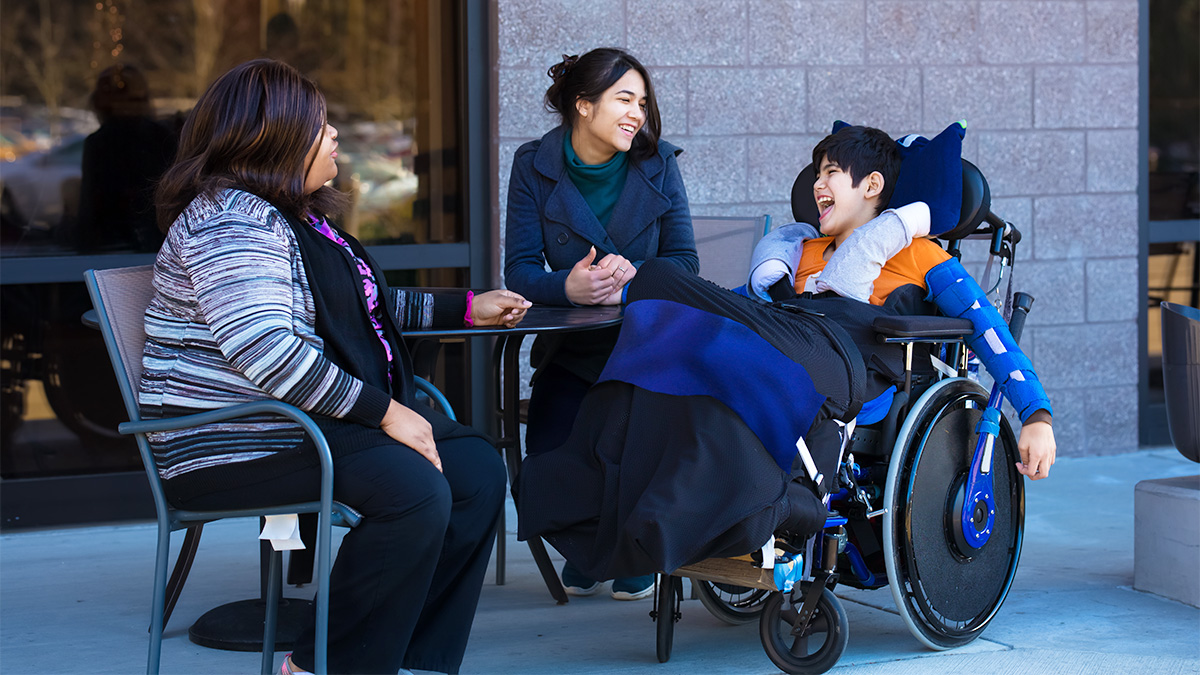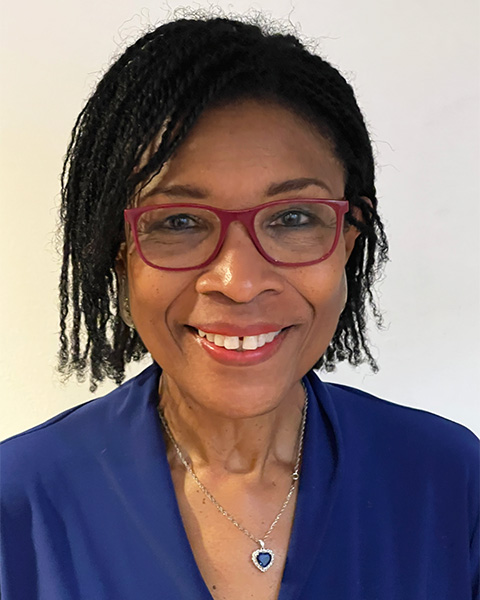Georgetown Cultural Competence Experts Collaborate with NY State to Improve Developmental Disability Services

Posted in GUMC Stories | Tagged diversity, health disparities, inclusion, intellectual and developmental disabilities, National Center for Cultural Competence, racial equity
(April 6, 2023) — The state of New York has tapped Georgetown’s National Center for Cultural Competence to help advance the policies and practices of cultural and linguistic competence, diversity, equity and inclusion within its Office for People with Developmental Disabilities (OPWDD). The new three-year, $10 million-plus contract encompasses work throughout the agency’s system of supports and services.
“OPWDD is deeply committed to addressing historical and structural barriers that have created inequities in access to our services and supports for marginalized communities,” said Kerri E. Neifeld, commissioner for the New York State Office for People with Developmental Disabilities. “We are excited to have created an Executive Office of Diversity, Equity and Inclusion at OPWDD and to be partnering with the nationally renowned experts at Georgetown University’s National Center for Cultural Competence — key steps to achieving our goal to transform our system to one that meets the cultural and linguistic needs of our diverse population and workforce, and equitably serves New Yorkers with developmental disabilities.”

Tawara Goode, director of Georgetown’s National Center for Cultural Competence (NCCC) and associate professor of pediatrics, commended Gov. Kathy Hochul and Neifeld for their vision and leadership in prioritizing cultural and linguistic competence, diversity, equity and inclusion.
“The collaboration between New York state and our National Center for Cultural Competence is the first effort by any state to invest substantial resources and commit to both the internal and external work in collaboration with persons who experience intellectual and developmental disabilities, their families and service providers to effect systems change,” Goode said.
Building on Years of Experience
People with intellectual and developmental disabilities experience disparities in health and mental health, employment, education, housing, transportation and other aspects of community living. These disparities are compounded by factors such as race, ethnicity, languages spoken, intersecting cultural identities, and resource allocation in geographic locations throughout the U.S., territories, and tribal nations, Goode explained.
“Disparities are the outcomes of inequities,” Goode said. “They are long-standing, well documented, and disproportionately affect minoritized populations, including those with intellectual and developmental disabilities, their families, and the communities in which they live. Changing systems that perpetuate disparities is necessary and long overdue in the intellectual and developmental disabilities space.”
Since 1995, consistent with its mission, the NCCC has conducted a core set of activities to advance and sustain cultural and linguistic competence, including measuring and assessing cultural and linguistic competence, contributing to the body of knowledge, conducting professional development and training, demonstrating approaches to enhance practice, impacting policy, and conducting research.
The NCCC’s collaboration with New York has four primary components, each with intended outcomes of system change that advances cultural and linguistic competence, diversity, equity, and inclusion within New York’s intellectual and developmental disabilities system. The NCCC will use approaches that embody principles and practices of diversity, equity and inclusion by engaging the Office for People with Developmental Disabilities, people with lived experience of intellectual and developmental disabilities and their families, and the provider network in systems change efforts.
The goal of the project is to advance policies and practices of cultural and linguistic competence, diversity, equity and inclusion in all components of the intellectual and developmental disability system of New York state. Ultimately, it will strengthen infrastructure and increase capacity among all parties invested in equity for people with intellectual and developmental disabilities, and their families.
Creating ‘A Model for the U.S.’
The collaboration between the NCCC and New York state is the product of extensive engagement across New York’s diverse communities, including people seeking supports and services, family members, friends, and service providers who encouraged the Office for People with Developmental Disabilities to prioritize cultural and linguistic competence, diversity, equity and inclusion.
“I am honored and proud to be a part of this partnership,” said Hirah Mir, chief diversity officer and director of the Executive Office of Diversity, Equity and Inclusion in the Office for People with Developmental Disabilities. “I look forward to all that New York state is going to learn about diversity, equity and inclusion by listening to our communities and working with service providers and advocacy organizations to meet the needs of people with developmental disabilities.
Consistent with values and practices of diversity and inclusion,community engagement will continue as the NCCC works with New York state on “improving systems of supports and services for persons who experience intellectual and developmental disabilities and their families across all racial, ethnic, linguistic and cultural groups,” Goode said.
“Our center could not be happier and more confident that our collaboration with the Office for People with Developmental Disabilities — successes and challenges — will serve as a model for the U.S.,” she said.
Kat Zambon
GUMC Communications
